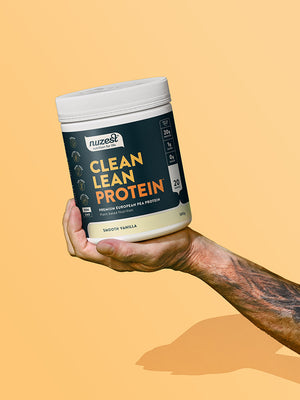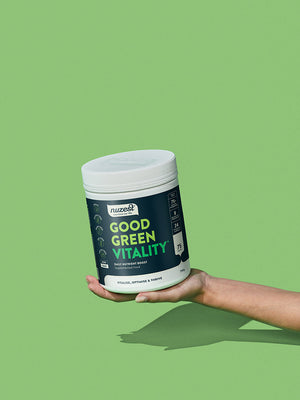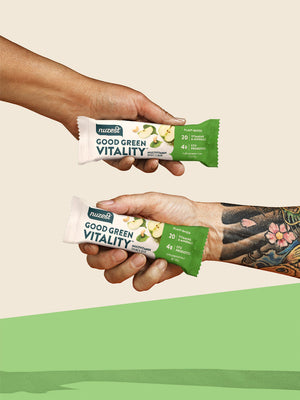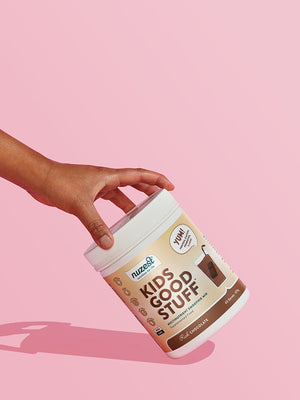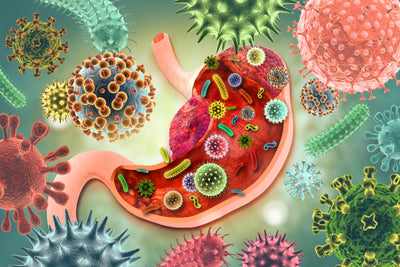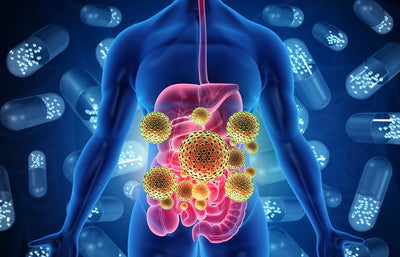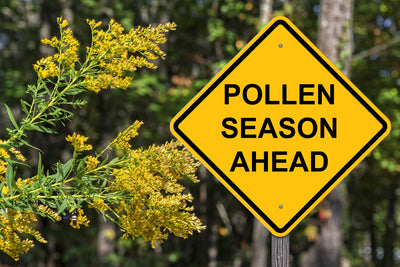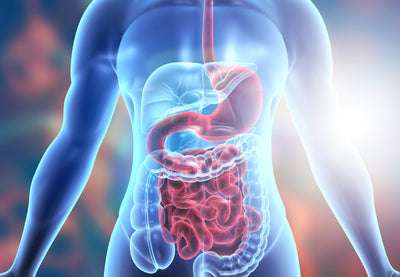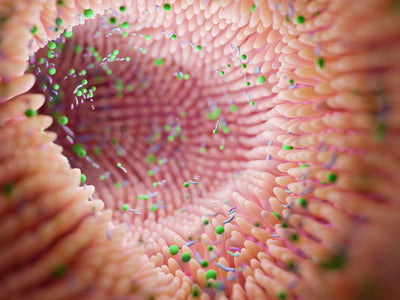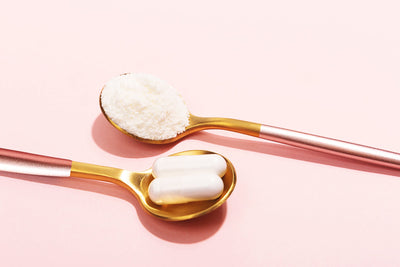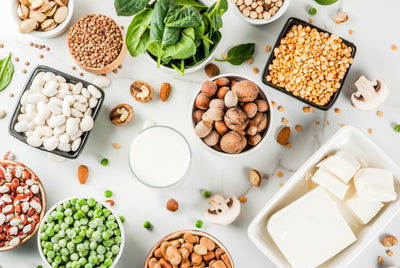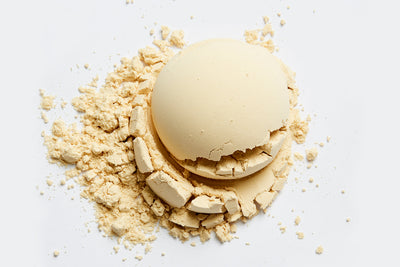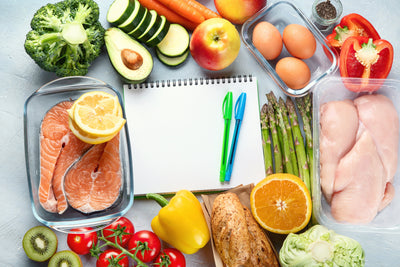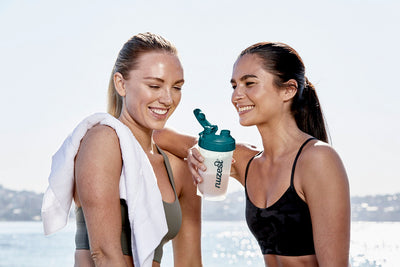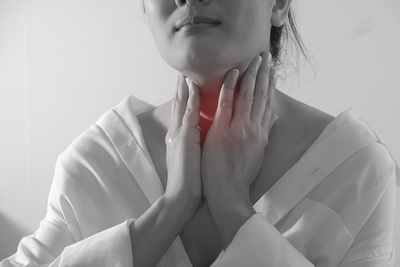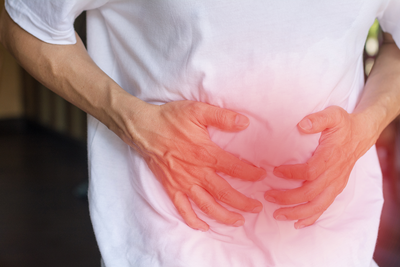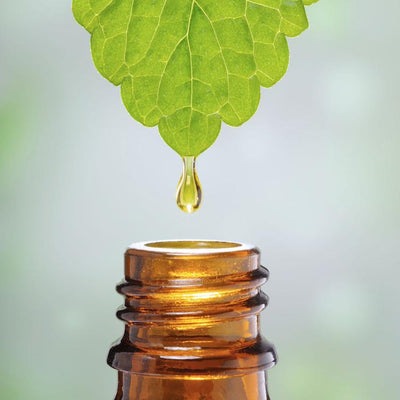
17 min read
Detox Diets Part 3: How to Support Your Body’s Natural Detox Ability
Posted By
Caitlin Turner
Written by Cliff Harvey, PhD, DipFit, DipNat
Detoxes and ‘cleanses’ are some of the most popular diets available.
And while they probably won’t help you to lose any more weight than a good diet, or improve your body’s ability to remove toxins, certain nutrients and lifestyle changes can help to support your body’s own, amazing, innate detoxification pathways.
Read our article ‘How Dangerous are Common Toxins’ for a refresher on what toxins are and how they affect the body.
Reducing Toxins In Your Environment
There are many strategies that we can employ to help reduce our exposure to common toxins:
1. Choose supplements tested for heavy metals
Many supplement companies, including Nuzest, test their products to meet stringent guidelines for heavy metal contamination. When choosing a supplement always do your research first.
Check the label to see what country the product originates from (manufacturing and monitoring systems for health supplements varies between countries) and if in doubt, contact the company direct.
2. Choose organic foods where possible
Organic does not always mean low in toxins and toxicants, however they are likely to be lower in pesticide and herbicide residue and environmental pollutants.
If your budget allows, opt for organic produce where possible. And if not, make sure to wash your fruit and veg thoroughly before consuming in order to lower your risk of consuming unwanted toxins.
3. Choose foods from countries with more stringent quality controls
Some developing nations can have more relaxed environmental and pollution controls, and this can affect even ‘organic’ foods.
It is safest to choose foods and materials from countries with more stringent environmental pollution laws and those known to have lower levels of heavy metals in groundwater and soil.
4. Reduce the use of plastics
Replace plastic storage containers with glass wherever possible. If using plastic, make sure that you opt for BPA-free plastic and always recycle properly.
One of the most important things to remember is to only ever heat your food in containers that are deemed microwave-safe!
This includes glass and microwavable safe ceramics and plastics. Current data indicates that BPA alternatives such as bisphenol B (BPB), bisphenol F (BPF), and bisphenol S (BPS) have comparative effects to BPA, so should also be avoided where possible42.
5. Exercise
Exercise can promote greater metabolic activity which may speed the clearance of toxins from the body.
It is also useful to offset some of the negative effects that can result from some toxins and toxicants by helping to improve oxidative control, increase insulin sensitivity, and encourage the clearance of damaged and dysfunctional tissue from the body.
Endurance exercise-trained rats are able to maintain glutathione status (an important antioxidant involved in detoxification) during paracetamol toxicity compared to untrained rats 15.
6. Fasting
Occasional or intermittent fasting can help the body to deal with some of the effects of environmental toxins and toxicants by modulating inflammation, encouraging the removal of dysfunctional and damaged tissue, and improving antioxidant pathways.16-20.
Nutrients That Aid Detoxification
Many of the toxins that we can be exposed to promote oxidative and other damage in the body. So, nutrients that might help us to avoid accumulating toxins, encourage their detoxification and excretion, and reduce damage are of particular interest.
Oxidation, for example, is a normal and essential part of many cellular processes, however excessive oxidation is damaging.
Our natural, internal antioxidant pathways rely on a healthy liver, and various micronutrient and macronutrient co-factors.
Most of the research that has been performed on dietary and supplemental interventions that may help in various aspects of detox or resistance to toxic chemicals has been performed in animals (due mainly to the ethics of exposing humans to toxic chemicals!).
Regardless, this research offers a glimpse into some nutritional interventions that might improve the resilience of the body. These findings are summarised under the sub-headings below.
Nutrients that may help to reduce the accumulation, and improve the excretion, of common toxins
- Spirulina and dandelion may help to reduce mercury accumulation23. Spirulina with zinc increases the excretion of arsenic in chronic arsenic poisoning24, and absorbs cadmium25.
- Chlorella may be useful in inhibiting the absorption of dioxins via food and the reabsorption of dioxins stored already in the body in the intestinal tract, thus preventing the accumulation of dioxins within the body26. Research performed in mice also suggests that mercury excretion is enhanced by chlorella27-28.
- Milk thistle may help to reduce the entry of toxins into cells29,30.
- Folate is critical to the metabolism of arsenic31.
- Alpha-lipoic acid supports detoxification processes32.
- Glycine was found to be effective for increasing glutathione (a powerful antioxidant) levels, and decreasing lead levels in bone (with extremely high doses of around 1g per kg bodyweight in subject animals)33.
Nutrients that may help to reduce oxidation and damage from toxins and toxicants
- Treatment with cysteine, methionine, vitamin C and thiamine can reverse oxidative stress associated with arsenic exposure and result in a reduction in tissue arsenic level34.
- Spirulina and dandelion enriched diets reduce lead and mercury-related oxidation23,35.
- Spirulina, ginseng, onion and garlic decrease lipid peroxidation and increase endogenous antioxidant levels36,37.
- Curcumin, resveratrol, Vitamin C, E, selenium and zinc and the bioflavonoid quercetin can effectively protect against cadmium-induced lipid peroxidation and reduce the adverse effect of cadmium on antioxidant status38-40.
- Curcumin significantly protects against lipid peroxidation induced by both lead and cadmium41.
- Milk thistle reduces oxidative damage from toxicant exposure29,30.
Conclusion
The body has an amazing capacity to remove toxins and toxicants naturally from the body.
Despite what you may be led to believe, detox pills and potions won’t do anything more than a good diet based on natural and unrefined foods.
Lifestyle changes and dietary additions (such as Nuzest’s Good Green Vitality who’s formulation is inclusive of many of the nutrients mentioned above) can help to support your own internal detoxification pathways, thus helping your body work ‘as nature intended’.
Eating a varied nutrient-dense, organic (where possible) diet and exercising regularly can help us to reduce damage from toxins and toxicants and optimise the excretion of any chemical nasties that we may be exposed to.
Read more
Nootropics: improve cognitive function, focus, mood, memory and creativity...
The effects of sleep deprivation...
How digestible is pea protein...
References
- Hunter P. A toxic brew we cannot live without. Micronutrients give insights into the interplay between geochemistry and evolutionary biology. EMBO Reports. 2008;9(1):15-8.
- Uthus EO. Evidence for arsenic essentiality. Environmental geochemistry and health. 1992;14(2):55-8.
- IARC. Cadmium and Cadmium Compounds. WHO International Program on Chemical Safety; 2012.
- Organisation WH. Exposure to mercury: A major health concern. Geneva, Switzerland: World Health Organisation; 2007.
- Bernardo PEM, Navas SA, Murata LTF, Alcântara MRdSd. Bisphenol A: review on its use in the food packaging, exposure and toxicity. R Inst Adolfo Lutz. 2015:1-11.
- Pelch K, Wignall JA, Goldstone AE, Ross PK, Blain RB, Shapiro AJ, et al. A scoping review of the health and toxicological activity of bisphenol A (BPA) structural analogues and functional alternatives. Toxicology. 2019;424:152235.
- Raffaelina M, Santonicola S. Investigation on bisphenol A levels in human milk and dairy supply chain: A review. 2018.
- Usman A, Ikhlas S, Ahmad M. Occurrence, toxicity and endocrine disrupting potential of Bisphenol-B and Bisphenol-F: A mini-review. Toxicology Letters. 2019;312:222-7.
- Huang YQ, Wong CKC, Zheng JS, Bouwman H, Barra R, Wahlström B, et al. Bisphenol A (BPA) in China: A review of sources, environmental levels, and potential human health impacts. Environment International. 2012;42:91-9.
- JT Gowder S. Nephrotoxicity of bisphenol A (BPA)-an updated review. Current molecular pharmacology. 2013;6(3):163-72.
- Chen D, Kannan K, Tan H, Zheng Z, Feng Y-L, Wu Y, et al. Bisphenol Analogues Other Than BPA: Environmental Occurrence, Human Exposure, and Toxicity—A Review. Environmental Science & Technology. 2016;50(11):5438-53.
- Ohore OE, Zhang S. Endocrine disrupting effects of bisphenol A exposure and recent advances on its removal by water treatment systems. A review. Scientific African. 2019;5:e00135.
- Matuszczak E, Komarowska MD, Debek W, Hermanowicz A. The Impact of Bisphenol A on Fertility, Reproductive System, and Development: A Review of the Literature. International Journal of Endocrinology. 2019;2019:8.
- Davoren MJ, Schiestl RH. Glyphosate-based herbicides and cancer risk: a post-IARC decision review of potential mechanisms, policy and avenues of research. Carcinogenesis. 2018;39(10):1207-15.
- Lew H, Quintanilha A. Effects of endurance training and exercise on tissue antioxidative capacity and acetaminophen detoxification. European Journal of Drug Metabolism and Pharmacokinetics. 1991;16(1):59-68.
- Adawi M, Watad A, Brown S, Aazza K, Aazza H, Zouhir M, et al. Ramadan Fasting Exerts Immunomodulatory Effects: Insights from a Systematic Review. Frontiers in Immunology. 2017;8(1144).
- Faris MeA-IE, Jahrami HA, Obaideen AA, Madkour MI. Impact of diurnal intermittent fasting during Ramadan on inflammatory and oxidative stress markers in healthy people: Systematic review and meta-analysis. Journal of Nutrition & Intermediary Metabolism. 2019;15:18-26.
- Bagherniya M, Butler AE, Barreto GE, Sahebkar A. The effect of fasting or calorie restriction on autophagy induction: A review of the literature. Ageing Research Reviews. 2018;47:183-97.
- Horne BD, Muhlestein JB, Anderson JL. Health effects of intermittent fasting: hormesis or harm? A systematic review. The American Journal of Clinical Nutrition. 2015;102(2):464-70.
- Mazidi M, Rezaie P, Chaudhri O, Karimi E, Nematy M. The effect of Ramadan fasting on cardiometabolic risk factors and anthropometrics parameters: A systematic review. Pak J Med Sci. 2015;31(5):1250-5.
- Lennox RD, Cecchini-Sternquist M. Safety and tolerability of sauna detoxification for the protracted withdrawal symptoms of substance abuse. Journal of International Medical Research. 2018;46(11):4480-99.
- Ross GH, Sternquist MC. Methamphetamine exposure and chronic illness in police officers: significant improvement with sauna-based detoxification therapy. Toxicology and Industrial Health. 2011;28(8):758-68.
- El-Desoky GE, Bashandy SA, Alhazza IM, Al-Othman ZA, Aboul-Soud MA, Yusuf K. Improvement of mercuric chloride-induced testis injuries and sperm quality deteriorations by Spirulina platensis in rats. PLoS One. 2013;8(3):e59177.
- Misbahuddin M, Islam AZ, Khandker S, Ifthaker Al M, Islam N, Anjumanara. Efficacy of spirulina extract plus zinc in patients of chronic arsenic poisoning: a randomized placebo-controlled study. Clinical toxicology (Philadelphia, Pa). 2006;44(2):135-41.
- Doshi H, Ray A, Kothari IL. Biosorption of cadmium by live and dead Spirulina: IR spectroscopic, kinetics, and SEM studies. Current microbiology. 2007;54(3):213-8.
- Takekoshi H, Suzuki G, Chubachi H, Nakano M. Effect of Chlorella pyrenoidosa on fecal excretion and liver accumulation of polychlorinated dibenzo-p-dioxin in mice. Chemosphere. 2005;59(2):297-304.
- Uchikawa T, Yasutake A, Kumamoto Y, Maruyama I, Kumamoto S, Ando Y. The influence of Parachlorella beyerinckii CK-5 on the absorption and excretion of methylmercury (MeHg) in mice. The Journal of toxicological sciences. 2010;35(1):101-5.
- Uchikawa T, Kumamoto Y, Maruyama I, Kumamoto S, Ando Y, Yasutake A. The enhanced elimination of tissue methylmercury in Parachlorella beijerinckii-fed mice. The Journal of toxicological sciences. 2011;36(1):121-6.
- Abenavoli L, Capasso R, Milic N, Capasso F. Milk thistle in liver diseases: past, present, future. Phytotherapy research : PTR. 2010;24(10):1423-32.
- Feher J, Lengyel G. Silymarin in the prevention and treatment of liver diseases and primary liver cancer. Current pharmaceutical biotechnology. 2012;13(1):210-7.
- Heck JE, Gamble MV, Chen Y, Graziano JH, Slavkovich V, Parvez F, et al. Consumption of folate-related nutrients and metabolism of arsenic in Bangladesh. The American journal of clinical nutrition. 2007;85(5):1367-74.
- Rogers SA. Lipoic Acid as a Potential First Agent for Protection from Mycotoxins and Treatment of Mycotoxicosis. Archives of Environmental Health: An International Journal. 2003;58(8):528-32.
- Alcaraz-Contreras Y, Garza-Oca, #241, as L, Carca, #241, et al. Effect of Glycine on Lead Mobilization, Lead-Induced Oxidative Stress, and Hepatic Toxicity in Rats. Journal of Toxicology. 2011;2011.
- Nandi D, Patra RC, Swarup D. Effect of cysteine, methionine, ascorbic acid and thiamine on arsenic-induced oxidative stress and biochemical alterations in rats. Toxicology. 2005;211(1–2):26-35.
- Gargouri M, Ghorbel-Koubaa F, Bonenfant-Magne M, Magne C, Dauvergne X, Ksouri R, et al. Spirulina or dandelion-enriched diet of mothers alleviates lead-induced damages in brain and cerebellum of newborn rats. Food Chem Toxicol. 2012;50(7):2303-10.
- Karadeniz A, Cemek M, Simsek N. The effects of Panax ginseng and Spirulina platensis on hepatotoxicity induced by cadmium in rats. Ecotoxicology and environmental safety. 2009;72(1):231-5.
- Ola-Mudathir KF, Suru SM, Fafunso MA, Obioha UE, Faremi TY. Protective roles of onion and garlic extracts on cadmium-induced changes in sperm characteristics and testicular oxidative damage in rats. Food and Chemical Toxicology. 2008;46(12):3604-11.
- Eybl V, Kotyzova D, Koutensky J. Comparative study of natural antioxidants – curcumin, resveratrol and melatonin – in cadmium-induced oxidative damage in mice. Toxicology. 2006;225(2–3):150-6.
- Milton Prabu S, Shagirtha K, Renugadevi J. Quercetin in combination with vitamins (C and E) improves oxidative stress and renal injury in cadmium intoxicated rats. European review for medical and pharmacological sciences. 2010;14(11):903-14.
- Messaoudi I, Heni J, Hammouda F, Saïd K, Kerkeni A. Protective Effects of Selenium, Zinc, or Their Combination on Cadmium-Induced Oxidative Stress in Rat Kidney. Biol Trace Elem Res. 2009;130(2):152-61.
- Daniel S, Limson JL, Dairam A, Watkins GM, Daya S. Through metal binding, curcumin protects against lead- and cadmium-induced lipid peroxidation in rat brain homogenates and against lead-induced tissue damage in rat brain. Journal of Inorganic Biochemistry. 2004;98(2):266-75.
- Ijaz S, Ullah A, Shaheen G, Jahan S. Exposure of BPA and its alternatives like BPB, BPF, and BPS impair subsequent reproductive potentials in adult female Sprague Dawley rates. Tozicol Mech Methods. 2019;13:1-13.
Original article from:
https://www.nuzest.com/blog/detox-diets-part-3-how-to-support-your-bodys-natural-detox-ability/
Related news
min read
An Introduction to Gut Health & Nutrition – 5 Must See Articles
Gut health significantly affects overall wellbeing, influencing brain function, immunity, and metabolism. A balanced gut microbiota, influenced by diet and environment, can potentially enhance health, aid digestion, and reduce allergies. The roles of probiotics and prebiotics in gut health are also discussed.
min read
Probiotics vs. Prebiotics
Unleash gut health with probiotics and prebiotics! Strengthen digestion, immunity, and overall well-being. Try Nuzest's Good Green Vitality for convenient support with 8 billion CFU of probiotics. Take charge now!
min read
The Link Between Gut Health & Allergies - Plus 5 Top Tips to Help
Discover the link between gut health and allergies, and how the gut microbiome influences the body's immune response to allergens. Learn how adopting a balanced diet with prebiotics and probiotics can support gut health, reducing the risk of allergic reactions. Explore solutions for allergy relief and fostering a healthier gut with Nuzest’s multi-nutrient formula, Good Green Vitality.
min read
The Great Diet Debate: Unravelling the Tapestry of Popular Eating Plans
Exploring popular diets such as the Mediterranean, Ketogenic, Plant-Based, Paleo, and Intermittent Fasting, this overview highlights their principles, benefits, and considerations. It emphasizes the importance of finding a dietary pattern that aligns with individual health goals and preferences, while suggesting the potential benefits of incorporating a multi-nutrient supplement for overall health.
min read
The Gut Connection: How to Improve Your Digestion and Gut Health in 6 Steps
Discover the significance of gut health and its impact on digestion and overall well-being in this insightful article. Learn six practical steps, including maintaining a balanced diet, staying hydrated, managing stress, and using antibiotics wisely, to promote a healthy gut and enhance vitality.
min read
Does Gut Health Affect Your Immune System? | Do These 6 Things
The gut microbiome, which consists of trillions of bacteria in our digestive tract, plays a crucial role in supporting our immune system and overall health. Consuming probiotics and prebiotics, staying hydrated, managing stress, limiting processed foods, and engaging in outdoor activity and exercise are effective strategies to promote a healthy gut and enhance immunity.
min read
What is Collagen? Types, Sources and Benefits of Supplementation
Collagen is essential for joints, bones, muscles, ligaments, tendons, cartilage, skin, hair and nails.2 It is one of the primary structural proteins of connective tissue and plays a crucial role in the body by cushioning, strengthening, hydrating, binding, and connecting tissues together.3 Connective tissues are able to provide physical and mechanical support through the collagen, elastic and reticular fibres
min read
Kids Good Stuff for Skin Health
How can you ensure your kids have healthy skin? A part from the obvious, what nutrients can we provide our kids to ensure their skin stays in tip top shape?
min read
Maximising Mood In Your Kids
Almost 1 in 7 children and adults aged 4-17 had been diagnosed with a mental health disorder. Amy Butler discusses good nutrition and lifestyle modifications, that can help to reduce the risk.
min read
Long-Lasting Energy For Kids
Children and adolescents are going through massive periods of growth and development. To keep up with the demands of school, extracurricular activities, sports and friendships, kids often need a bit of an energy boost. In our latest blog we break down some specific nutrients for energy, to help support growing kids, and the best places to source them from.
min read
Setting Health Goals & Staying Motivated in 2021
Use this tried and tested goal strategy to set smaller, specific goals to avoid the overwhelm of unrealistic and vague health objectives.







